‘She’s an Entitled Little Brat’: Harvey Weinstein’s Defense Denounces First Accuser as Judge Slams Down His Gavel
A defense attorney, Jennifer Bonjean, was constantly slipping condescending comments into her questions, provoking and angering the witness.

The judge, Curtis Faber, who presides over the rape retrial of the disgraced film producer, Harvey Weinstein, used his gavel for first time in 13 years, as he tried to quiet the shouting between a key witness and one of the defense attorneys during a fierce cross-examination on Friday. More key witnesses are expected to testify in the coming weeks, and the judge may want to keep his gavel in reach.
“Let’s behave, both of you,” Judge Faber said loudly after the witness, Miriam Haley, and one of Mr. Weinstein’s defense attorneys, Jennifer Bonjean, had sparred with each other, again, as if the courtroom were a boxing ring.
“Can’t you please both follow my rules?” The judge asked later. “Ask a question, answer it. If it’s objectionable, the DA will object and I’ll make a ruling,” he said, referring to the Manhattan District Attorney’s Office, that brought the charges against the defendant, the top count being the allegation that Mr. Weinstein performed a criminal sexual act on Ms. Haley in July 2006.
But neither the witness nor the defense attorney followed the rules on Friday. While Ms. Haley constantly elaborated her answers, at times adding remarks that she had not been asked about, Ms. Bonjean was constantly slipping condescending comments into her questions, provoking and angering the witness.
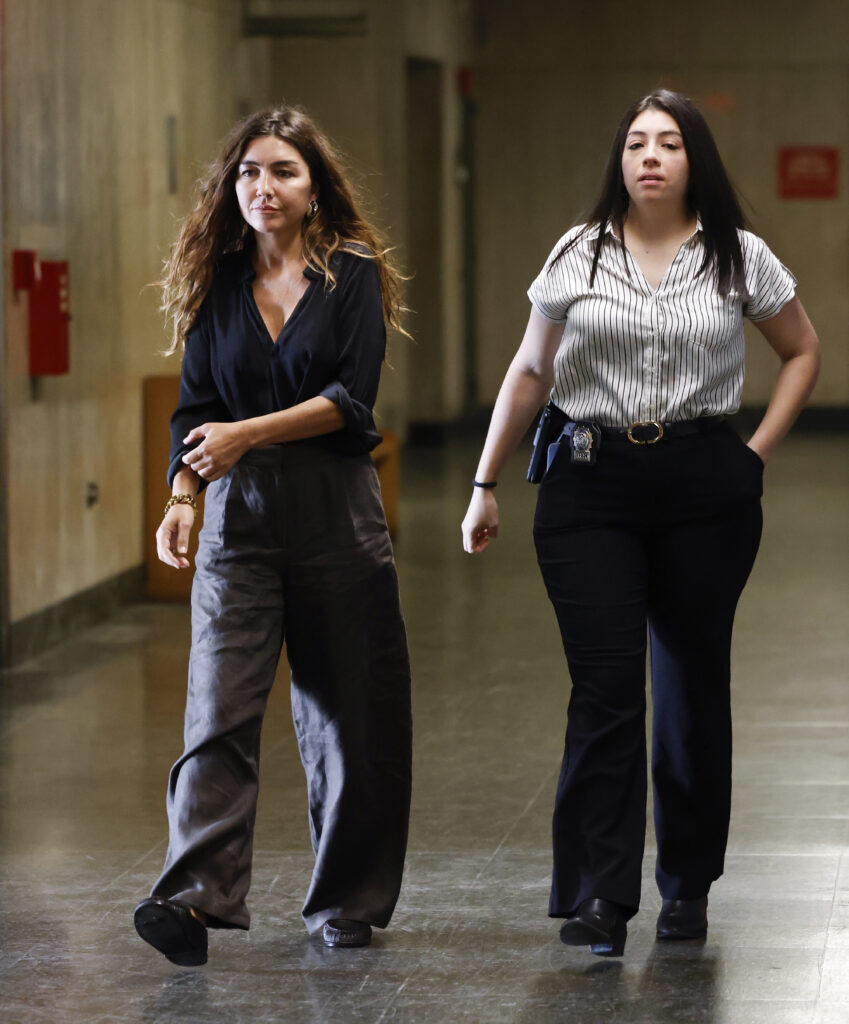
In one such exchange, Ms. Bonjean showed the witness an email she had sent to Mr. Weinstein in February of 2007, about six months after the sexual offense had allegedly taken place. In that email Ms. Haley was asking the former film producer, known for having produced iconic films like “Pulp Fiction,” if he could fund a project she was trying to get off the ground called “Trash TV.”
The defense attorney summarized and cited from the email, which she had put up on a screen for the jury. “And then down at the bottom, this is where you said… ‘I need cash for my trash’… ‘I am wondering if you’d lend me a few bucks or put in a small investment to help me get going?’ … ‘I’d love you forever, dot dot dot, and ever, dot dot dot.’ You see that?”
“Yes,” Ms. Haley replied.
“And you signed this off, ‘lots of love’?… This is the treatment that you sent him, right?” The defense attorney was trying to show the jury that the woman accusing her client of sexual assault was sending him emails, asking for money, which were written in a loving and friendly tone. Ms. Bonjean had brought up and hammered the witness on this issue on Thursday already. This time, she said, “We will not go through that again.”
“Thanks,” Ms. Haley answered, somewhat annoyed.
“My pleasure,” the attorney fired back.
“We need to refrain from the commentary,” the judge intervened.
“I am just trying to be polite,” Ms. Haley said, slightly passive aggressive.
“And be cute,” Ms. Bonjean snapped back.
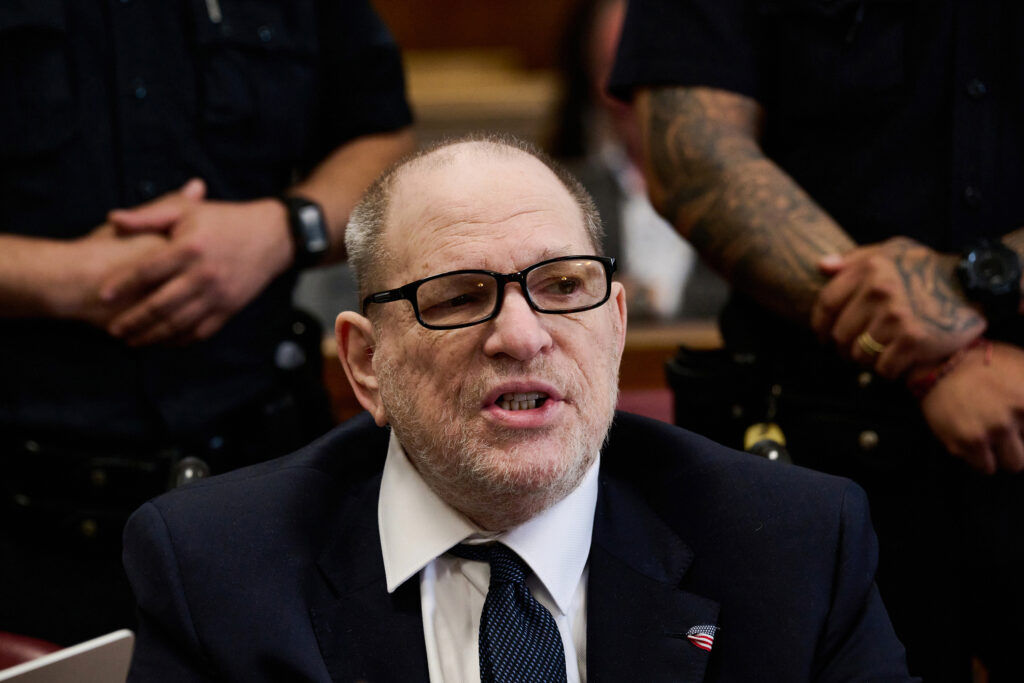
“Everyone refrain from commentary, please!” The judge, who until this cross-examination, had always been soft spoken and very calm, raised his voice. In a later, much more continuous instance, he bent over to look for his gavel, which he then slammed on the bench, later claiming that he had not used it in 13 years.
Ms. Haley is a key witness in the retrial against Mr. Weinstein. She accuses him of forcibly performing oral sex on her inside his Manhattan apartment almost twenty years ago. In legal terms that equates to a criminal sexual act in the first degree, which is punishable by a maximum of 25 years in prison.
Mr. Weinstein is on trial again after his previous conviction was vacated by the Court of Appeals last year. The court found that prosecutions had used damaging witness testimony by accusers – including the “Sopranos” star Annabella Sciorra – whose allegations had not been part of the charges and thus ordered a new trial.
In his first trial, which took place in the same Lower Manhattan courthouse in 2020, Mr. Weinstein faced the same charge by Ms. Haley. The jury found he was guilty and Mr. Weinstein was sentenced to 20 years behind bars for that charge alone.
Now, the defense was determined to discredit Ms. Haley’s testimony, arguing that their sexual encounters were consensual, and that Ms. Haley had benefited from her relationship to Mr. Weinstein, who had bought her plane tickets to Los Angeles and London, hired her to briefly work as an assistant on one of his TV shows in New York, gotten her invitations to movie premieres, and even connected her with other executives after the alleged sexual assault took place, when she was eager to produce her own show.
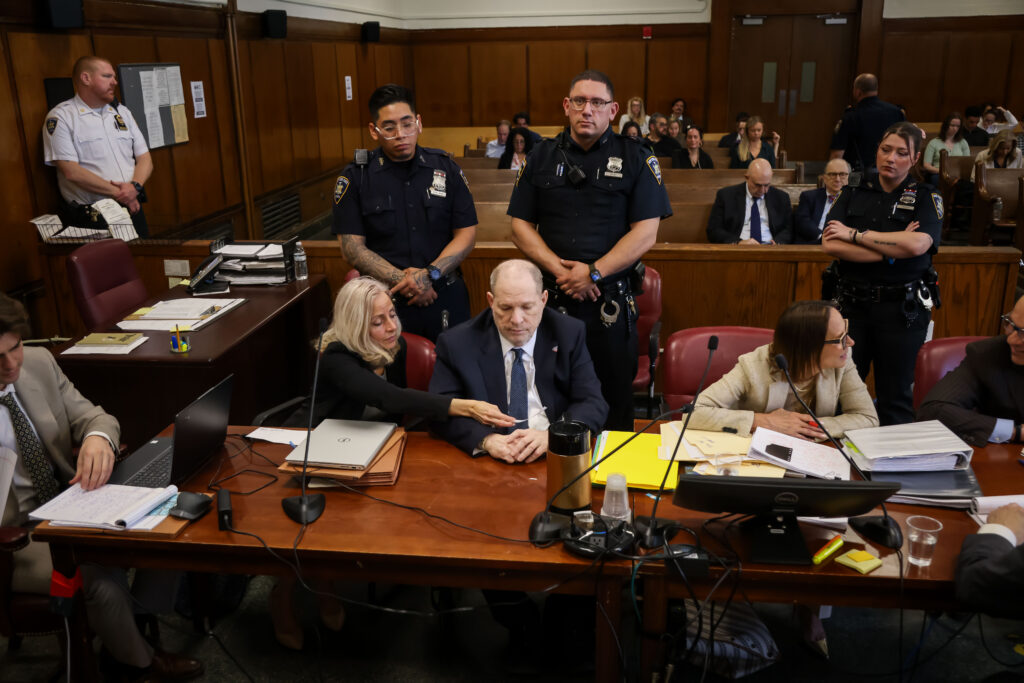
But Ms. Haley insisted that regardless of these benefits and requests, she had been very vocal about not wanting to engage with Mr. Weinstein, who is 25 years older than her, sexually, and that he had forced her to do so despite her repeated rejection. During her testimony on Friday morning, she went so far as to shout at the defense attorney, “Don’t tell me I wasn’t raped by that f– a–,” as the Sun reported.
The outburst came about because the defense was inquiring what Ms. Haley had worn on the day that Mr. Weinstein allegedly forced himself on her, and who had taken off her clothes. If the defense could prove that Ms. Haley had removed her clothing, they could potentially show that she had willingly engaged in the sexual interaction. But Ms. Haley did not remember what she wore and insisted that whether it was a pair of jeans or a dress, Mr. Weinstein must have removed it.
“I didn’t arrive naked.” She said shortly before she cursed out the defendant, after which the judge called for a break and released the witness so she could regain control of herself.
When she was back on the stand, Ms. Bonjean asked again, “When you were in the room with Mr. Weinstein, how did your clothes get removed?”
“He took off whatever I had on on the bottom,” Ms. Haley answered, and clarified that her clothes “were removed by Harvey Weinstein, but in which manner exactly, I was busy struggling, so I don’t remember exactly what he took off, when, how.”
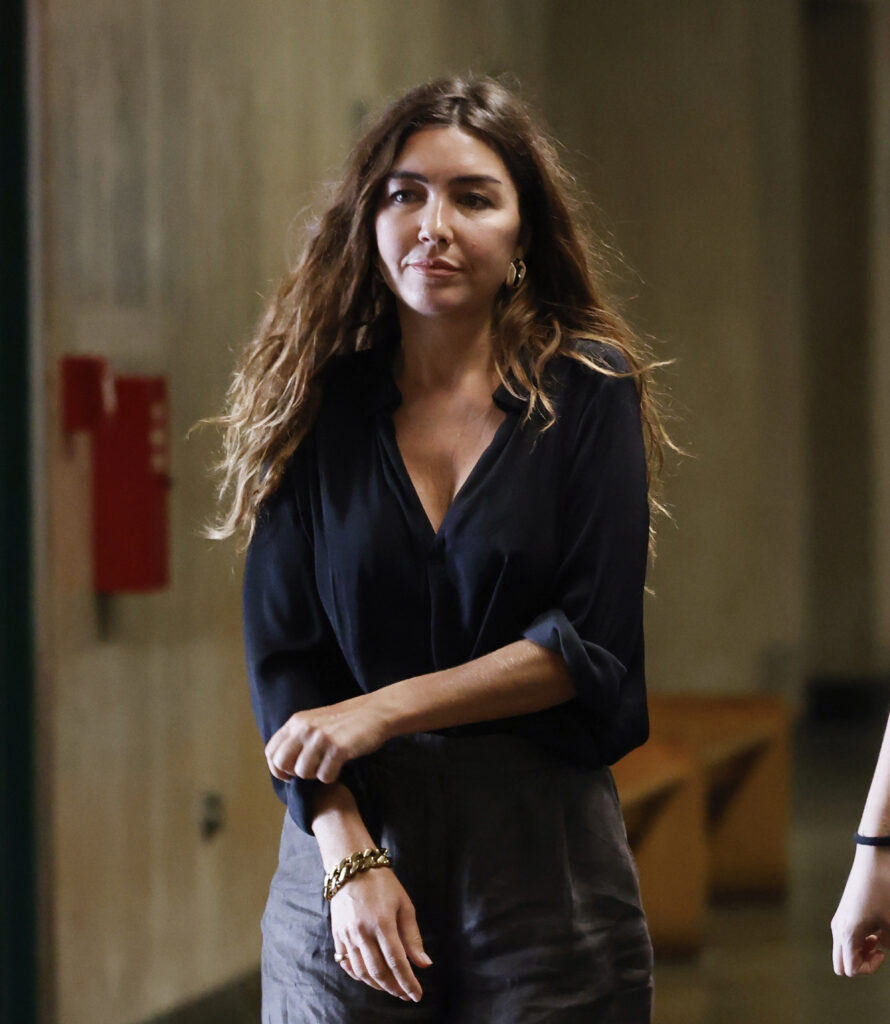
The defense attorney then tried to impeach the witness by arguing that she had not mentioned her clothes being removed in her previous testimonies when she testified before the grand jury, and also during the first trial in 2020. The judge asked the defense attorneys to look through the transcripts to see if at any point, any of the attorneys had in fact asked about the removal of her clothing.
“The issue is potential impeachment by omission. Defense needs to establish the witness had been drawn to the issue in the prior proceedings in order for the admission to be established.” The judge said.
While both the defense and the prosecution now rummaged through the hundreds of pages of transcripts, eager to prove their points, contentious comments between the parties continued.
“We are only interested in the legal issue, we are not here to criticize each other,” the judge said, trying to calm everyone down.
The defense could not find any statements that indicated Ms. Haley had purposely omitted any testimony at any time. But some damage had been done. By the end of the day, the defense had successfully portrayed Ms. Haley as someone, who liked to be invited to the Hamptons, dine in expensive restaurants, travel the world, and have her expenses paid for by other people, as Ms. Bonjean phrased it, “That is how you have traveled the world, other people paying for it, correct?”
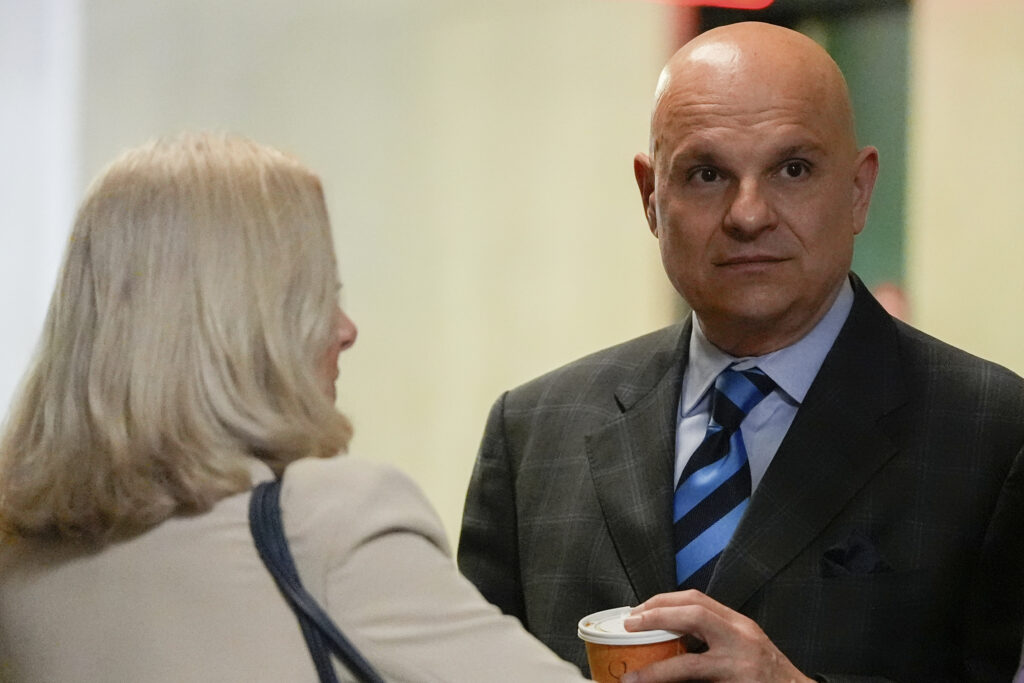
Ms. Bonjean later told reporters that Ms. Haley “was an entitled little brat… she was always hitting” her client “up for things.”
An assistant district attorney, Nicole Blumberg, tried to mend the damage on redirect.
“Now, you were also asked some questions on cross examination about Lorne Michaels,” Ms. Blumberg asked, referring to the longtime producer of “Saturday Night Live,” with whom Ms. Haley had been acquainted, “and Paul Allen” the the co-founder of Microsoft, whom Ms. Haley had also lunched with, “and Paul McCartney and Mick Jagger and Jack Nicholson and Nick Rhodes,” the keyboardist of the band Duran Duran, “and Ron Pearlman,” a recognized actor. “Remember being asked those questions?” The prosecutor inquired, “and being asked if they are all A-listers?”
“Yes,” Ms. Haley replied. The entire courtroom remembered because Ms. Bonjean had grilled her extensively about meeting and hanging out with famous people in the Hamptons and in fancy restaurants in New York and London, and at film festivals.
“These men I just mentioned you were asked about on cross examination, they are all older, right?” Ms. Blumberg pressed. “And they are all famous A-listers?”
“Yes,” Ms. Haley answered.
Ms. Bonjean knew where the line of questioning was headed and immediately objected. The prosecutor plowed ahead with her question. “I am almost done,” she told the judge and then asked her witness, “did you ever accuse any of those A listers, older men of sexually assaulting or raping you?”
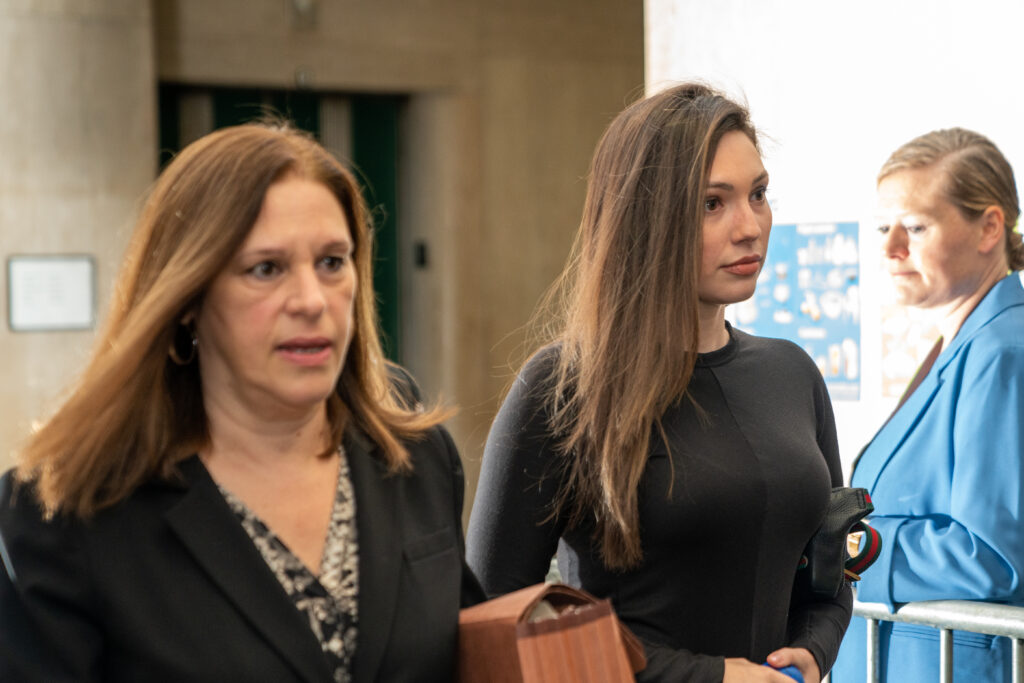
“No,” Ms. Haley testified.
Then Ms. Blumberg tried to clear up another issue, the fact that the witness had sent Mr. Weinstein emails over the course of several years, asking him to fund and support her projects, and had signed the letters with “Lots of love, Miriam.”
“Did you ever love or have any romantic feelings whatsoever for the defendant, Harvey Weinstein?” Ms. Blumberg asked.
“That is not what it means, no.” Ms, Haley explained.
“Did you ever give the defendant, Harvey Weinstein, permission to put his mouth on your vagina?” The prosecutor pressed.
“No,” The witness said.
Then, at the end of a long and exhausting day, the prosecutor threw her final punch, when she asked, “Did you ever give the defendant, Harvey Weinstein, permission to put his penis inside your vagina?”
The defense table exploded with objections and Arthur Aidala called for a mistrial, as he had done three times before in the course of the trial.
Outside of the courthouse, Ms. Bonjean explained to reporters why the defense was so furious.
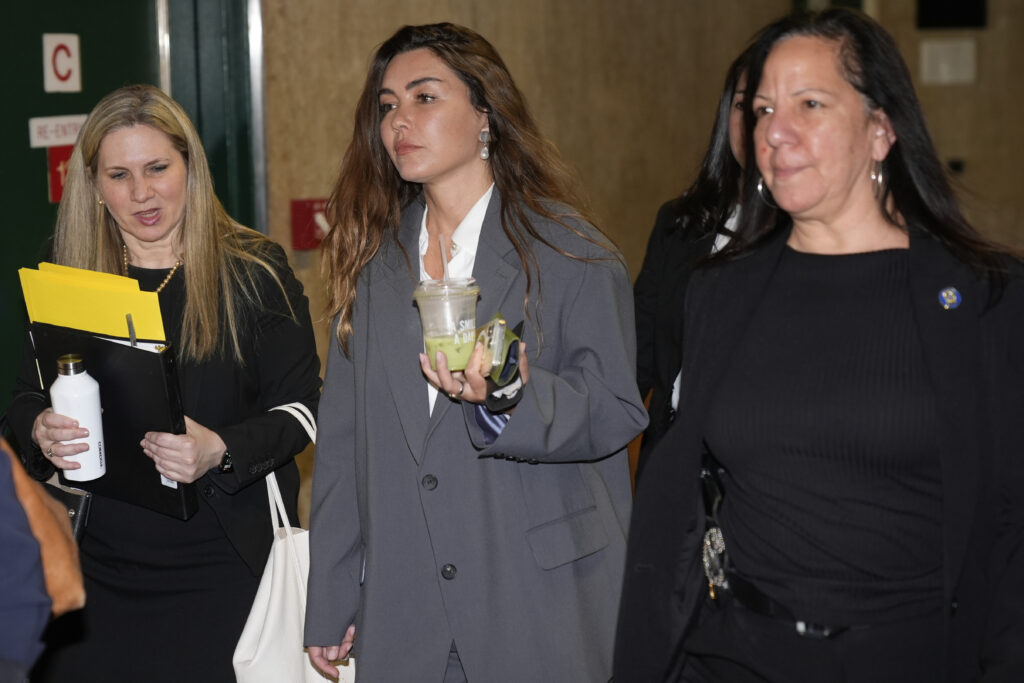
“So, the testimony that was elicited from the prosecutor in the end, which relates to that second incident at the Tribeca Grand is not a charged offense, okay?” Ms. Bonjean was referring to the time Ms. Haley went to see Mr. Weinstein at a hotel in downtown Manhattan, where, according to Ms. Haley,’ they had sexual intercourse. That encounter, Ms. Haley testified, occured after the alleged assault in his apartment, where he forced oral sex on her. Mr. Weinstein has not been charged for having sexual intercourse with Ms. Haley at the hotel. She testified under tears that she blamed herself for going to the hotel, knowing what he could do, she said.
But Ms. Bonjean found that the way the prosecutor had elicited the testimony was “to suggest that he had committed another assault, which is not a charged offense, in which case, that becomes molineux, which was the basis that this case was overturned in the first place.”
“You can’t sandbag or ambush people,” the attorney fumed. “She (Ms. Haley) may have said ‘I didn’t want to do it… I didn’t like it.’ But she never said it was a crime previously, and it wasn’t charged as a crime… Now, we get into court, and it’s been twisted in a way that makes it seem like there’s been another assault… It was improper, it was prejudicial, and it should result in a mistrial, or it can only be cured by the court saying that was improper. He’ll have to try to cure it with the jury. But that was a big problem.” Ms. Bonjean added that prosecutors “knew she was doing it.”
Ms. Bonjean, who has represented defendants like the comedian Bill Cosbey, whose conviction she helped overturn, and the disgraced singer and songwriter R.Kelly, will not appear in court again after Friday. She has another trial at the Eastern District of New York that she needs to attend starting Monday.
“I’m sad to be leaving. I would really like to be here for the remainder of the case.” She told reporters, adding that she felt “fortunate” because her work in this case was going to focus on Ms. Haley “more than anyone… so at least I was able to get that done.”
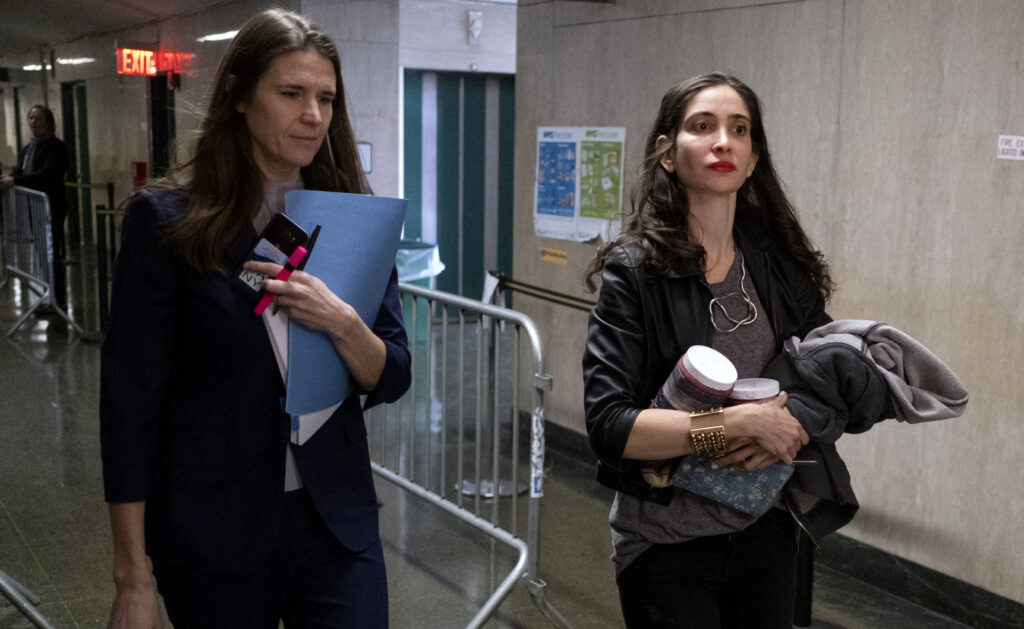
When asked, if she felt that her client would have a better chance than in 2020, now that the #MeToo movement, which was sparked by the allegations against him back in 2017, has somewhat subsided, Ms. Bonjaen said that she hoped the current social climate would allow “the juries to use their own common sense, their own perspective, and not be influenced so much by what the culture is saying.”
“Because what happens in the culture,” she elaborated, “is not necessarily what should be happening in the courtroom… While it may be very good for the culture it does not necessarily mean that we need to apply it in a courtroom.”
The trial will resume on Tuesday.

